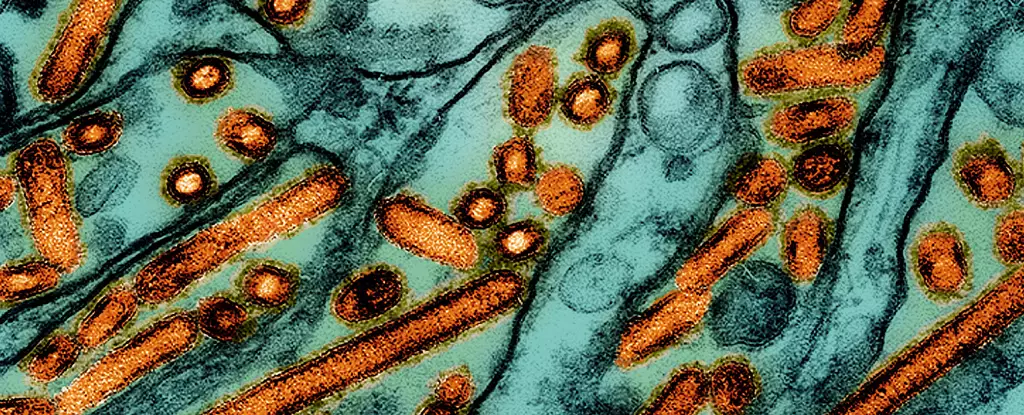In a concerning development, US officials have reported the country’s third human case of bird flu linked to the current outbreak of the virus in dairy cattle. This case, which involves a Michigan farm worker, highlights the potential risks faced by those working closely with animals during such outbreaks.
The Centers for Disease Control and Prevention (CDC) noted that all three cases were spread from cows to humans, rather than through human-to-human contact, which is a relief in terms of containment. However, this latest case is the first to exhibit more typical symptoms of acute respiratory illness associated with influenza virus infection, such as coughing, eye discomfort, and watery eye discharge. The infected individual was promptly treated with antiviral medication and isolated at home, with their symptoms eventually resolving.
One alarming factor highlighted by Michigan’s health department was the lack of personal protective equipment worn by the infected farm worker. Health authorities have strongly recommended the use of protective gear for those in close contact with dairy herds to minimize the risk of transmission. Additionally, individuals are advised to refrain from close exposure to sick or dead animals, including wild birds, domesticated birds, and other animals. Moreover, it is crucial to avoid contact with animal excrement or bedding, as well as consuming unpasteurized milk.
The outbreak of bird flu in dairy cattle has raised questions about feed practices in the US, particularly the feeding of cattle with ground-up chicken waste. While some scientists believe this practice may be a risk factor for bird flu transmission, the feed industry has contested this claim. US authorities, on the other hand, attribute the spread of the virus to wild birds infecting cows.
Despite the recent cases, the CDC has reassured the general public that the risk of infection for individuals without direct exposure to infected animals remains low. However, vigilance is still advised, especially for those working in close proximity to animals. Regular testing is being carried out among farm workers in Michigan to identify and contain potential cases early on.
The recent human cases of bird flu linked to the current outbreak in dairy cattle serve as a stark reminder of the potential risks faced by farm workers and others in close contact with animals. It is essential for individuals to adhere to recommended protective measures and practices to minimize the spread of the virus and safeguard public health. Vigilance, awareness, and prompt action are key in combating the threat posed by bird flu outbreaks in the agricultural sector.


Leave a Reply